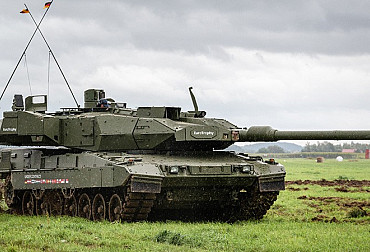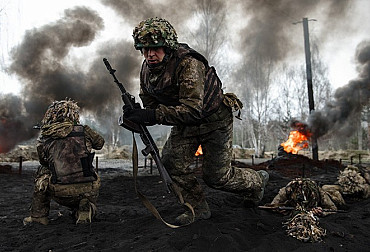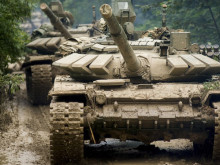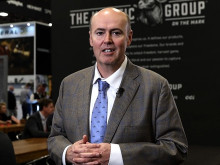Tatra Faces the opposite problem of most Czech automotive companies: Managing rapid production growth
Kopřivnice-based Tatra Trucks, the world’s second-oldest truck manufacturer known for its heavy-duty off-road vehicles with unique chassis for military and civilian use, is facing rising global demand for thousands of vehicles. As a result, the company must significantly ramp up production, placing it in a different position compared to most European automakers. However, this brings its own specific challenges.
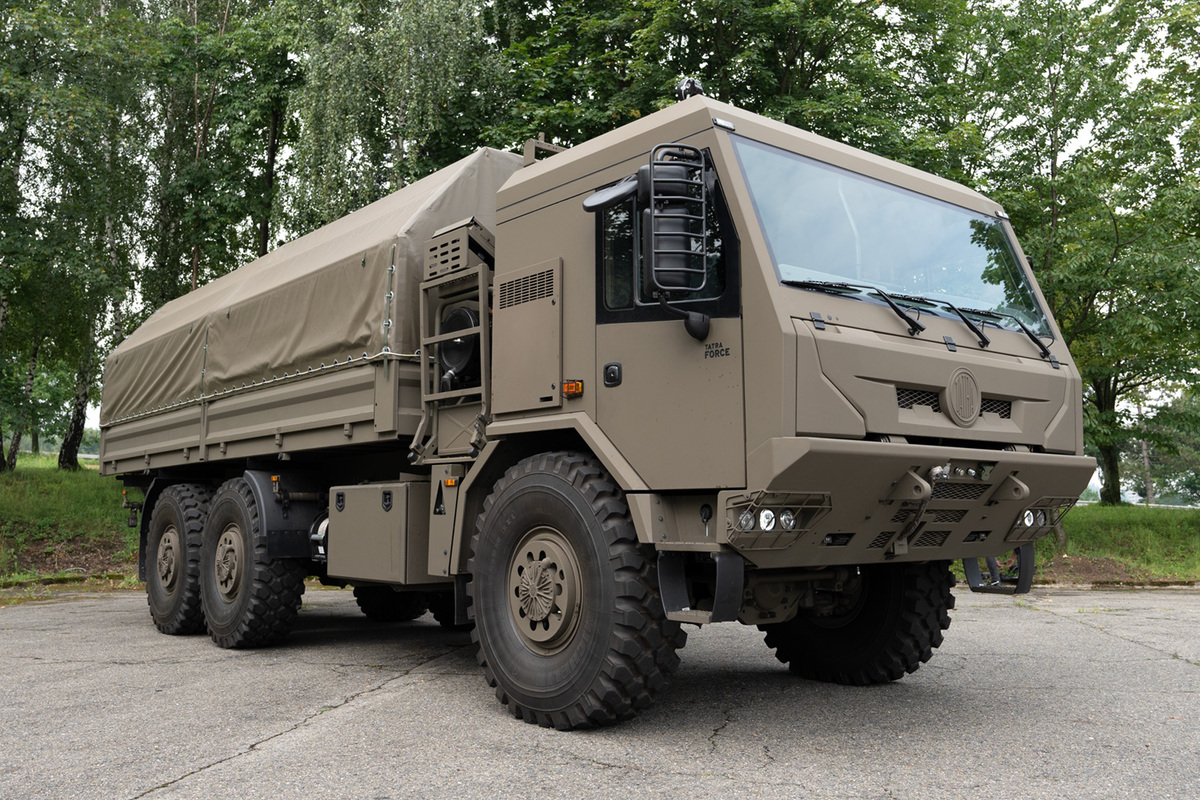
The European automotive industry is struggling with increasing competition and various challenges, including stricter EU emissions regulations, safety requirements under the General Safety Regulation, pressure to support electromobility, lingering effects of the COVID-19 pandemic on supply chains, deteriorating security conditions, and the energy crisis. While many manufacturers struggle, producers of niche vehicles in high demand, such as Tatra, face challenges that others might envy.
Growing global demand for Tatra vehicles
Tatra Trucks is currently experiencing a situation where global customer demand far exceeds its current production capacity. Scaling up production for specialized vehicles like Tatras, which carry substantial added value, is no simple task. The company’s growth is partly thanks to its partners within the CSG Group, which secure orders for its vehicles from all over the world. However, the challenge lies in the complexity of manufacturing Tatras, which offer users unique and sought-after capabilities.
The company is responding logically to the market situation by investing in new production technologies and hiring employees. By December, the workforce had grown by 250 people compared to the beginning of the year. Salaries have increased by an average of 14%, ensuring that all employees share in the company’s success—a hallmark of well-managed firms. However, production has not yet grown as quickly as customers might wish. Nevertheless, for the company’s leadership, this is a better situation than the opposite scenario—a drop in demand.
The significant gap between demand and supply remains a complex challenge, and solutions cannot be immediate or fully satisfying for everyone. Issues exist both within Tatra and its suppliers, who, for various reasons, are struggling to keep pace. Although production will see substantial year-over-year growth, achieving this has required immense effort at all levels—hard work that is well-compensated but, given the scale of demand, still feels insufficient.
Increasing production capacity is crucial, and development continues
Research and development have not stopped. No successful company aiming to remain competitive can afford to stagnate, no matter how high the quality of its existing products. This year, Tatra began production of new generations of the Tatra Phoenix and Tatra Force vehicles and introduced a new hybrid-powered vehicle. The company is also working on alternative ecological powertrains and developing vehicles with automated driving and remote-control capabilities.
Today, Tatras are no longer just rugged off-road trucks but modern vehicles equipped with cutting-edge technologies and electronic systems that meet new legislative requirements and customer demands.
The surge in production brings a significant workload, felt by both managers and workers on the production lines. In uncertain times for the automotive industry, this is a remarkable phenomenon. For Tatra, it represents a dramatic shift from the past when there were no orders to fulfill. Tatra aims to double its production capacity from the current 1,500 vehicles annually to 3,000 vehicles within a few years. A large portion of production is destined for soldiers and firefighters in the Czech Republic and around the world.
Top management takes the lead
Since April 2023, Lukáš Andrýsek has led Tatra as both CEO and Chairman of the Board. He has implemented significant changes aimed at increasing production and quality at a time when the production mix increasingly includes complex vehicles for the defense sector. He summarized his efforts:
"We have implemented numerous positive steps: introducing new IT systems for product and company management, strengthening the supply chain, and investing in new production technologies. We successfully launched serial production of new generations of our key Tatra Force and Tatra Phoenix lines within one year. We developed modernized Tatra engines, a new type of independently suspended swinging axles, and a new electronically controlled gearbox. As a result, year-over-year production will see a significant increase, particularly for more complex vehicles."
Kristijan Fiket on his return to Tatra:
After twelve years, I am returning to Tatra to take on the role of CEO. I previously led the company from 2010 to 2012. Before my first arrival at Tatra, I had two offers on the table: one was for a high managerial position at BMW, and the other was with Tatra. It took me just 20 minutes to decide on Tatra, and I’ve never regretted it.
In two years, I managed to significantly improve the company’s dire financial situation, and in a record-breaking timeframe of just a few months, we developed the prototype of the Tatra Phoenix, thanks to the tremendous dedication of Radek Smolka’s team and all the Tatra employees. At the time, I had to make a series of tough decisions to ensure Tatra’s survival. The most critical was maintaining bank financing, without which we wouldn’t have been able to pay wages. It was during that period that I met my wife, who worked at one of the financing banks. Radek Smolka even drove me to my wedding in the prototype of the Tatra Phoenix.
I left after two years due to a fundamental disagreement with Tatra’s American and Indian shareholders about the company’s future direction.
I have always felt that I left Tatra with unfinished business. Now, I have a unique opportunity to return and support its development in a situation completely different from 2010. Tatra now has the backing of an incredibly strong and active majority shareholder, the CSG Group, which brings in major defense contracts. These contracts involve vehicles with significantly higher value and price, as well as considerably more complex production. For CSG’s owner, Tatra is a passion project and a cornerstone of their business. They are prepared to invest in production and in the people who are the greatest asset of any company.
For the first time in its modern history, Tatra has no problem with orders. There is global demand for its unique product on the scale of several thousand vehicles per year. The challenge now is to manufacture them on time and to the required quality. That is a challenge we must tackle together. The path Tatra has embarked on under Lukáš Andrýsek is the right one. However, we need to calm the atmosphere and give Tatra’s employees stability and a sense of security. Even tough and demanding tasks can be solved with good team communication.
In my youth, I served in a special police unit in my native Croatia. Without mutual respect and transparent communication among team members, missions couldn’t be accomplished, and mistakes often came at the cost of lives. Tatra is a specialized automaker that must be more agile and inventive than competitors producing tens of thousands of identical vehicles. I am convinced that we can be an elite player in both Czech and European industry and that we can thrive even in a situation where much of the European automotive sector is struggling.
I look forward to working with Tatra Trucks Chairman Lukáš Andrýsek, with whom I had in-depth discussions about Tatra’s situation. He was one of the people who convinced me to return to Tatra. Lukáš has done a tremendous amount of work, which I can now build upon, and he will be an important partner and a link to the CSG Group, on which Tatra’s prosperity undeniably depends.















